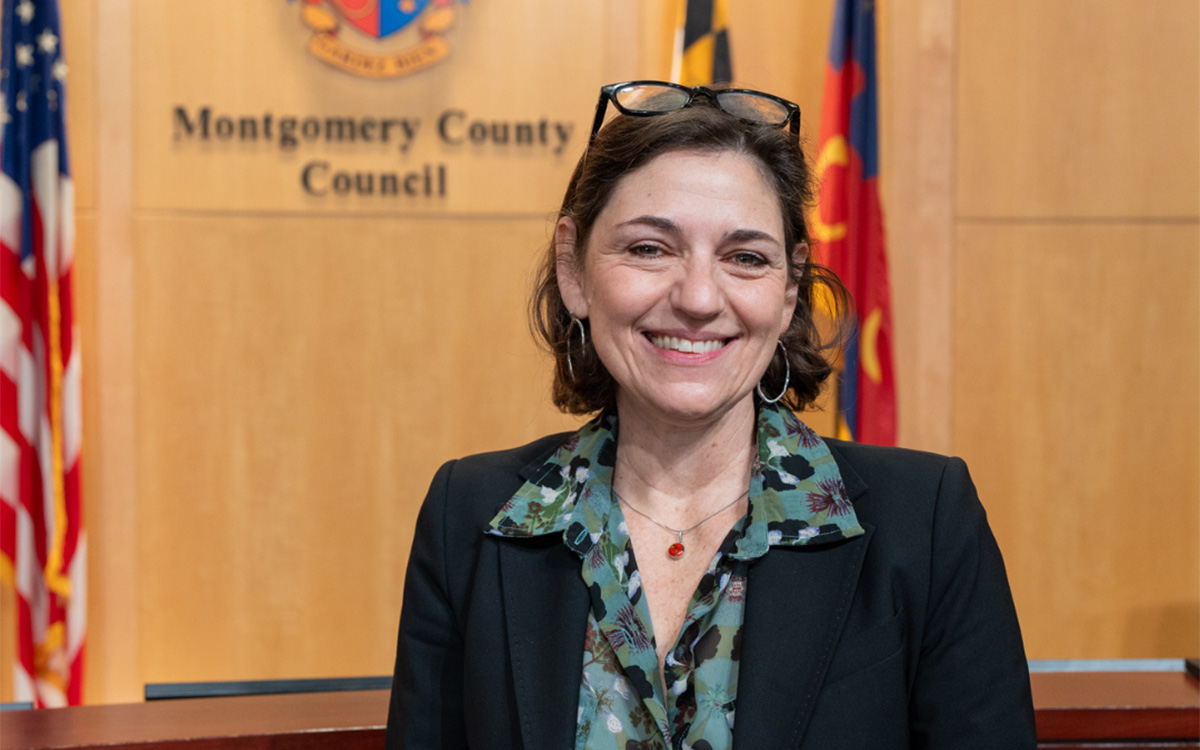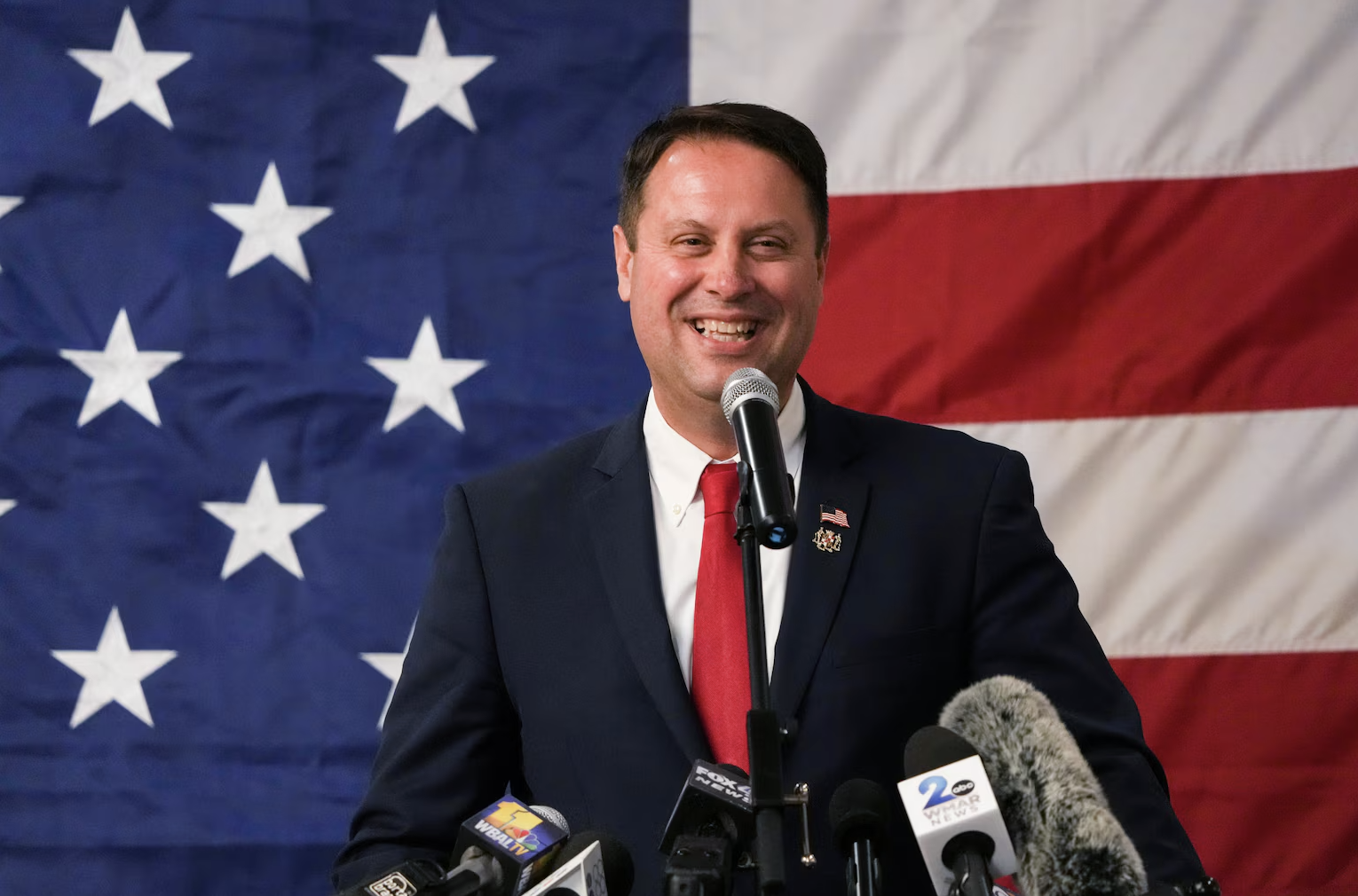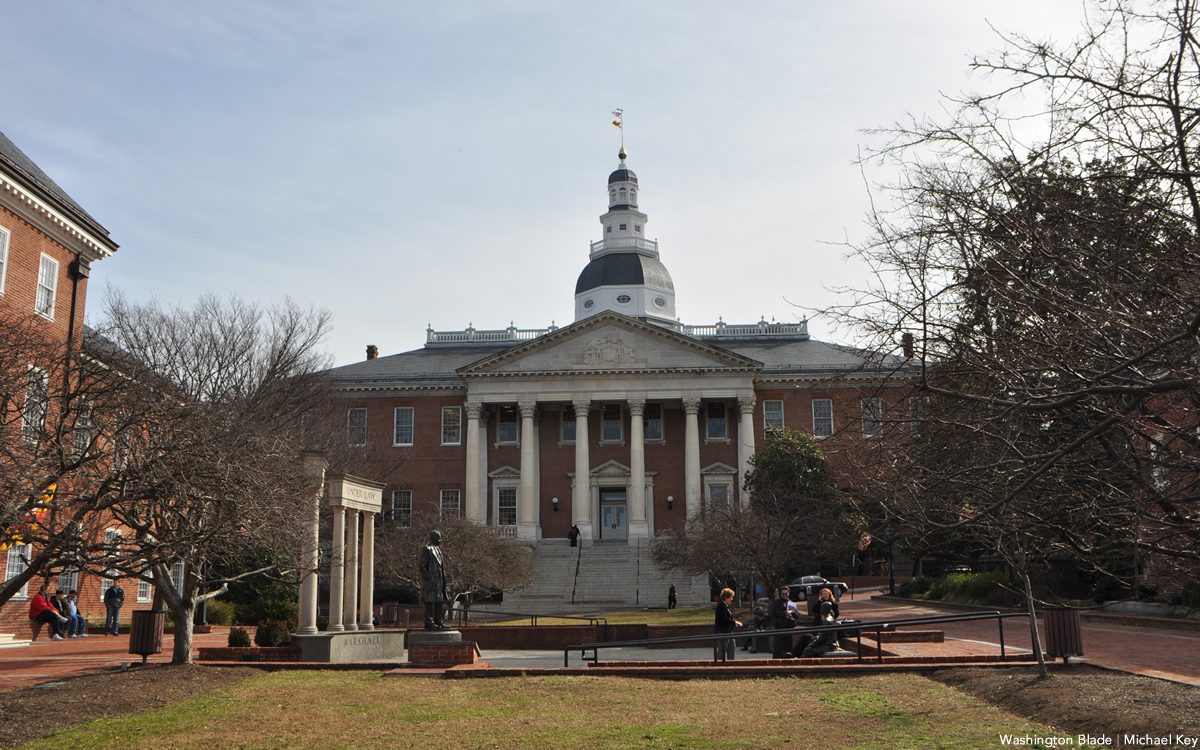Maryland
Montgomery County summit responds to transgender health care challenges
Council Vice President Kate Stewart’s son is trans

Maryland earns high marks overall from the Movement Advancement Project for its LGBTQ policy protections, including becoming a “shield” state for transgender health care, but a Montgomery County survey that found trans youth face difficulties in accessing care prompted Council Vice President Kate Stewart and a county health nonprofit to convene a virtual roundtable on Saturday.
“My son transitioned when he was in high school and our local pharmacy regularly did not have the correct size syringes,” Stewart told the Washington Blade during a telephone interview. “I had to take off from work and drive from Takoma Park to Chase Brexton in Howard County. That’s not a quick drive, and not accessible by public transportation.”
She said Trans Maryland’s work helped make syringes more available now, but more needs to be done to increase access to equitable care at the local level.
Maryland is one of 15 states, along with D.C., to which the Movement Advancement Project gave a high overall score for its LGBTQ policies. In terms of trans health care equity, 22 states have banned medically advised care for transitioning youth as of 2023, with Missouri banning similar care for adults. In response, D.C. and 14 states, including Maryland, enacted “shield” laws to protect equal access to health care.
Maryland’s Trans Health Equity Act, effective Jan. 1, requires Medicaid to cover trans-affirming care. However, a Montgomery County survey found 41 percent of those needing such care reported difficulty finding it in the county.
While the report listed three clinics — Planned Parenthood, Mary’s Center and CCI Health Services — trans residents were unaware of their services or where to look for them locally. More familiar were services provided by Chase Brexton Health and Johns Hopkins in Baltimore, and D.C.’s Whitman-Walker Health, mostly due to their long histories of work and advocacy across the region. But for the gender-diverse leaders on the panel, equity meant having local access to health care.
“Those without transportation or wealth aren’t able to receive transition health care in their community,” said Rev. Ali K. C. Bell, a minister for Congregational Life at Cedar Lane Unitarian Universalist Church.
Bell said he was privileged to be able to travel to Baltimore for the health care he needed but was disappointed by the economic disparity.
CCI Health Services, a community health center with a decades-long history in the area, joined with Stewart in hosting the roundtable to address the issues raised by the report.
CCI Chief Medical Officer Dr. Will Giodano-Perez announced a new clinic specializing in sexual and minority health, but acknowledged more could be done to address legacy discrimination and abuse.
“Our mission is to promote excellent health care for everyone,” Giodano-Perez said. “We have to be aware of what kinds of conversations we are not having with our patients and to focus on [addressing] our own biases.”
Trans Maryland Executive Director Lee Blinder spoke of their experiences often educating health care professionals while being treated.
“One day I’m going to invoice that doctor about ‘training’ them on how to treat me and others like me,” said Blinder, who grew up in Montgomery County. “I’d like to have a provider that I don’t have to train. When you’re sitting there in that paper gown, you’re vulnerable.”
Bell also emphasized everyone in the provider’s office needs to be trained in order for the health care experience to be considered affirming. Looking to the future, Amena Johnson, the LGBTQ liaison for the Montgomery County Office of Community Partnerships, stated that health disparities faced by LGBTQ seniors should be addressed as well.
“We are not all children or young people. I hope to be an old trans person one day, and it doesn’t look like a great landscape, frankly,” Blinder said before relaying an experience about visiting their grandmothers in retirement facilities and the care teams not being ready to interact with them as a trans grandchild, much less as a future trans resident.
Giodano-Perez acknowledged the pain caused by these difficult health care experiences, but admitted one health organization cannot handle these issues alone and it would take involvement and support from the community.
“We are limited with how much time we have,” he explained, noting the frustration of not being able to address all of the social determinants of health, but also not wanting to see “another of our patients pass from suicide.”
He stated one place to start was to make care respectful and effective for everyone.
“Sounds basic,” he said, “but we’re going to tackle these things.”
Stewart told the Blade her challenges seeking care for her son showed her health equity was about having access to resources where you lived.
“On a map it may look like, well, we have Chase Brexton over here and Whitman-Walker in D.C.,” she said, “but connecting with people’s everyday experiences … shows how much work we still have to do.”
Maryland
4th Circuit dismisses lawsuit against Montgomery County schools’ pronoun policy
Substitute teacher Kimberly Polk challenged regulation in 2024

A federal appeals court has ruled Montgomery County Public Schools did not violate a substitute teacher’s constitutional rights when it required her to use students’ preferred pronouns in the classroom.
The 4th U.S. Circuit Court of Appeals in a 2-1 decision it released on Jan. 28 ruled against Kimberly Polk.
The policy states that “all students have the right to be referred to by their identified name and/or pronoun.”
“School staff members should address students by the name and pronoun corresponding to the gender identity that is consistently asserted at school,” it reads. “Students are not required to change their permanent student records as described in the next section (e.g., obtain a court-ordered name and/or new birth certificate) as a prerequisite to being addressed by the name and pronoun that corresponds to their identified name. To the extent possible, and consistent with these guidelines, school personnel will make efforts to maintain the confidentiality of the student’s transgender status.”
The Washington Post reported Polk, who became a substitute teacher in Montgomery County in 2021, in November 2022 requested a “religious accommodation, claiming that the policy went against her ‘sincerely held religious beliefs,’ which are ‘based on her understanding of her Christian religion and the Holy Bible.’”
U.S. District Judge Deborah Boardman in January 2025 dismissed Polk’s lawsuit that she filed in federal court in Beltsville. Polk appealed the decision to the 4th Circuit.

By PAMELA WOOD | Dan Cox, a Republican who was resoundingly defeated by Democratic Gov. Wes Moore four years ago, has filed to run for governor again this year.
Cox’s candidacy was posted on the Maryland elections board website Friday; he did not immediately respond to an interview request.
Cox listed Rob Krop as his running mate for lieutenant governor.
The rest of this article can be found on the Baltimore Banner’s website.
Maryland
Expanded PrEP access among FreeState Justice’s 2026 legislative priorities
Maryland General Assembly opened on Jan. 14

FreeState Justice this week spoke with the Washington Blade about their priorities during this year’s legislative session in Annapolis that began on Jan. 14.
Ronnie L. Taylor, the group’s community director, on Wednesday said the organization continues to fight against discrimination against people with HIV/AIDS. FreeState Justice is specifically championing a bill in the General Assembly that would expand access to PrEP in Maryland.
Taylor said FreeState Justice is working with state Del. Ashanti Martinez (D-Prince George’s County) and state Sen. Clarence Lam (D-Arundel and Howard Counties) on a bill that would expand the “scope of practice for pharmacists in Maryland to distribute PrEP.” The measure does not have a title or a number, but FreeState Justice expects it will have both in the coming weeks.
FreeState Justice has long been involved in the fight to end the criminalization of HIV in the state.
Governor Wes Moore last year signed House Bill 39, which decriminalized HIV in Maryland.
The bill — the Carlton R. Smith Jr. HIV Modernization Act — is named after Carlton Smith, a long-time LGBTQ activist known as the “mayor” of Baltimore’s Mount Vernon neighborhood who died in 2024. FreeState Justice said Marylanders prosecuted under Maryland Health-General Code § 18-601.1 have already seen their convictions expunged.
Taylor said FreeState Justice will continue to “oppose anti anti-LGBTQ legislation” in the General Assembly. Their website later this week will publish a bill tracker.
The General Assembly’s legislative session is expected to end on April 13.
-

 Mexico5 days ago
Mexico5 days agoUS Embassy in Mexico issues shelter in place order for Puerto Vallarta
-

 Real Estate5 days ago
Real Estate5 days ago2026: prices, pace, and winter weather
-

 Theater5 days ago
Theater5 days agoJosé Zayas brings ‘The House of Bernarda Alba’ to GALA Hispanic Theatre
-

 Netherlands4 days ago
Netherlands4 days agoRob Jetten becomes first gay Dutch prime minister


















